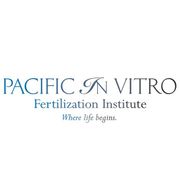What to Eat to Improve Fertility

Your diet is just one factor that impacts fertility, along with age, genetics, and underlying medical conditions, so consult a fertility doctor for recommendations specific to your situation. However, if you’re trying to get pregnant, these general dietary guidelines may help.
Foods to Eat
Some of the nutrients linked to increased fertility in women include vitamin B-12, folic acid, and omega-3 fatty acids. To get more of these nutrients in your diet, eat plenty of cooked seafood, leafy greens, and fortified grains.
Iron is another nutrient shown to increase fertility, so consume beans, lentils, and enriched rice. You should also eat foods with vitamin C, like citrus fruits and bell peppers, to increase absorption of iron.
Foods to Avoid
 Studies have found that a diet high in trans fat can lower fertility in women. As much as possible, avoid highly processed items like fast food or pre-packaged dishes. Red meat and dairy can also add trans fat to your diet, so reduce your intake or enjoy these in moderation.
Studies have found that a diet high in trans fat can lower fertility in women. As much as possible, avoid highly processed items like fast food or pre-packaged dishes. Red meat and dairy can also add trans fat to your diet, so reduce your intake or enjoy these in moderation.
Additionally, obesity has been linked to infertility in both men and women, so watch your calorie intake and try to maintain a healthy weight. Eat a healthy diet full of whole foods and fewer processed items. Other lifestyle factors like exercise and sleep can also impact your weight.
If you’re trying to get pregnant and want to consult with a fertility doctor, contact Pacific In Vitro Fertilization Institute in Honolulu. The clinic offers a variety of infertility treatment options, including in vitro fertilization, egg retrieval, fertility preservation, and embryo transfer. The caring and knowledgeable team helps individuals and couples in all stages of the family planning process. Visit the website to see a full list of services. To schedule an appointment with a fertility doctor, call (808) 946-2226.
About the Business
(3 reviews)
Have a question? Ask the experts!
Send your question

